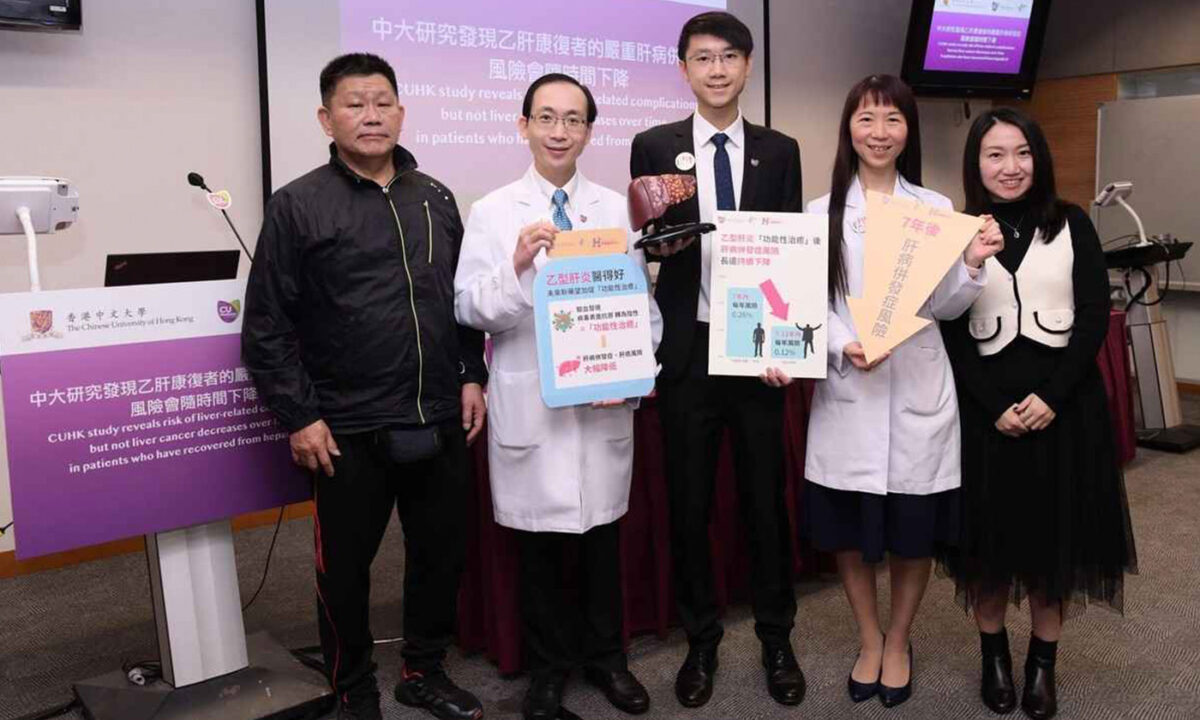


About 540,000 people in Hong Kong suffer from hepatitis B and the general belief among most people is that chronic hepatitis B can only be managed, not fully cured. However, the surface antigen of the hepatitis B virus (HBsAg) can be erased in some patients. These cases can be considered recovered and are technically referred to as “functionally cured.”
The Faculty of Medicine of the Chinese University of Hong Kong (CUHK) analyzed the data of recovered hepatitis B patients and found that the risk of severe liver disease complications decreased over time after recovery, but the risk of liver cancer did not show a similar trend. This serves as a reminder for patients to remain vigilant post-hepatitis B and closely monitor their status on a long-term basis. The details of this study have been published in the international medical journal the Journal of Hepatology.
The research team at CUHK analyzed the data of nearly 10,000 recovered hepatitis B patients who achieved functional cures between 2000 and 2020. It was found that the risk of serious liver disease complications, such as ascites and hepatic encephalopathy, as well as liver cancer, was low in the first seven years after recovery. The risk of serious liver disease complications decreased from the eighth year onward. This is especially true for patients who have never suffered from liver cirrhosis, where the average annual risk is only 0.05 percent in the eight to 12 years after recovery, except for the risk for liver cancer.
The author of the article, Dr. Terry Yip Cheuk-fung of the Faculty of Medicine at CUHK, pointed out that patients who have recovered from hepatitis B still need to be monitored regularly in the long run, especially those with high-risk factors, so people should never become complacent. They found factors such as old age, male sex, low platelet count, and cirrhosis all affect the long-term clinical manifestations of recovered patients. For example, patients with cirrhosis have a higher risk of developing serious liver disease complications and liver cancer after recovery.
Professor Vincent Wong Wai-sun of the CUHK Faculty of Medicine said, “Given the increased therapeutic options in the coming five to eight years, we anticipate that the proportion of patients achieving HBsAg loss will increase. Novel hepatitis B infection therapeutics should be offered to patients early once available, because the earlier the functional cure, the lower the risk of hepatic decompensation in their lifetime. Cancer surveillance should also be provided to functionally cured patients who are at risk.”

